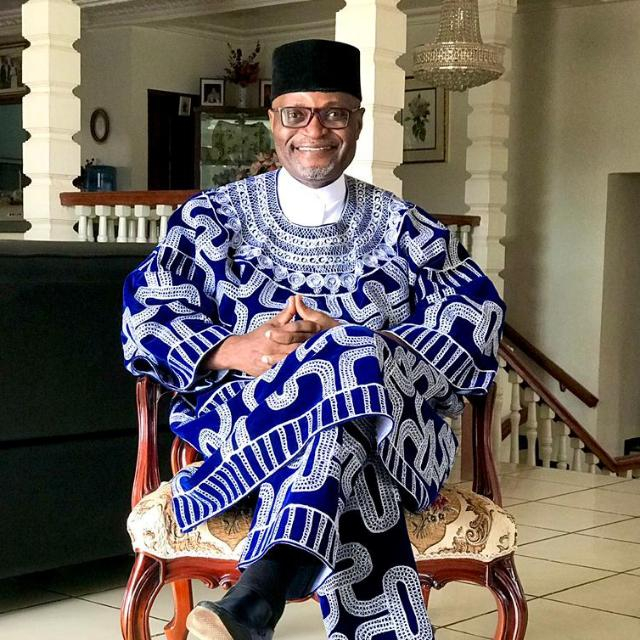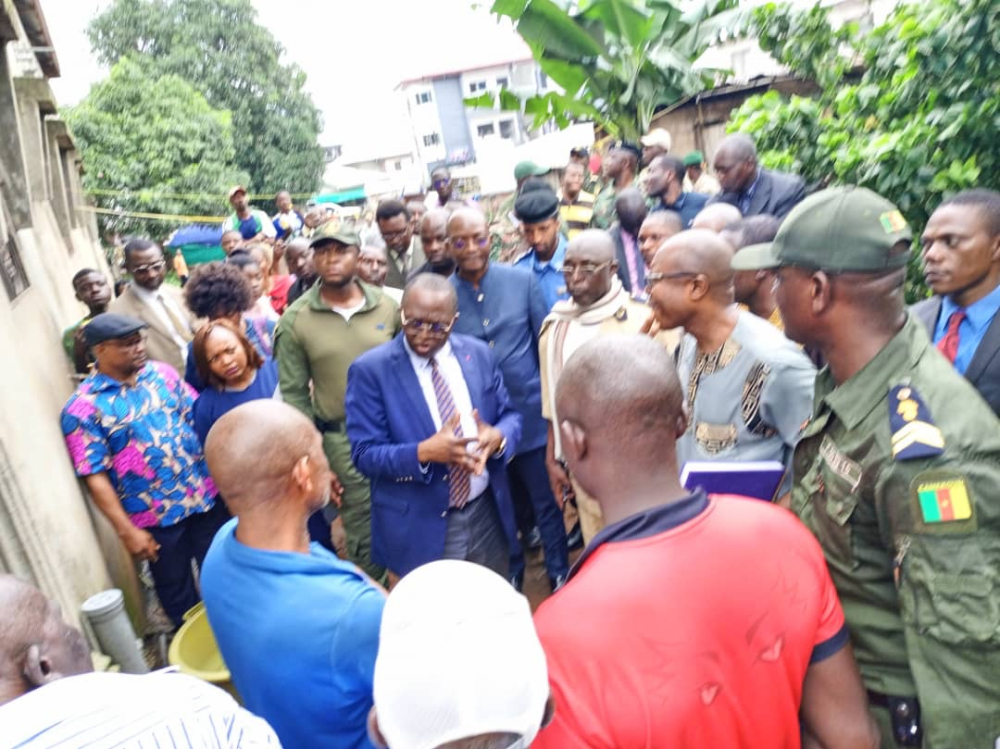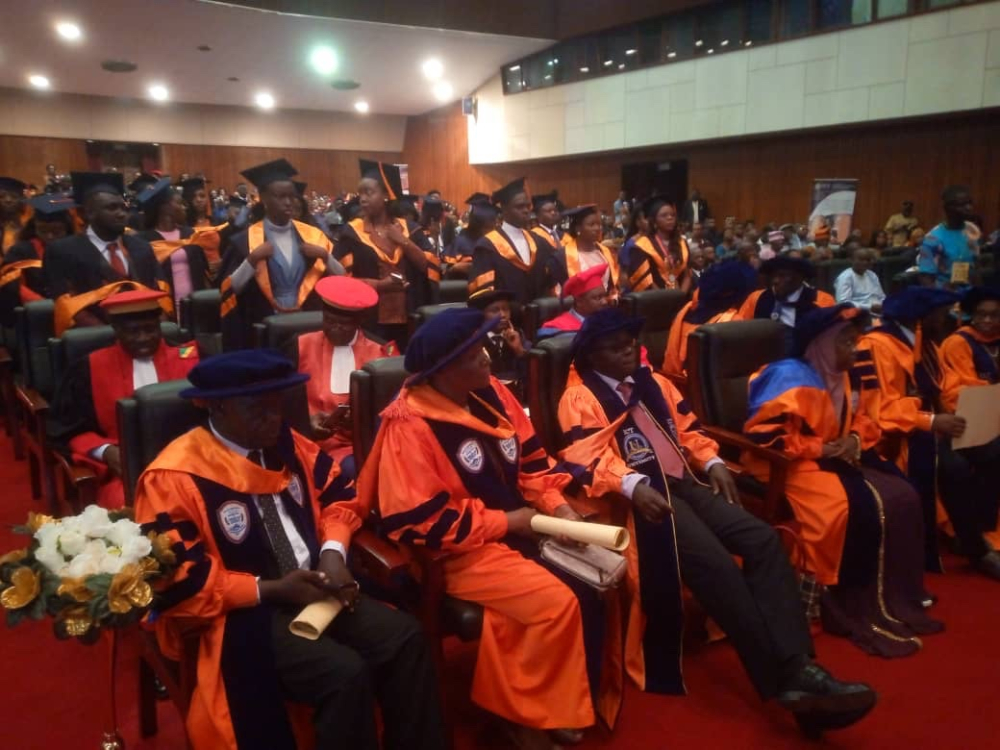Okrika’Business: A Thriving Trade Worth Billions
- by Jator NJENYU
- 30 Jul 2023 15:49
- 0 likes

According to a report by the Ministry of Economy, Planning and Regional Development, FCFA 23.6 Billion was spent by business persons on the acquisition of imported secondhand clothing (okrika) during the first 10 months of 2022
A total of FCFA 23.6 billion was spent by business persons on the acquisition of imported second-hand clothing during the first 10 months of 2022. This represents a decline of 16.4 percent, compared to the corresponding period in the previous year, according to a recent report by the Ministry of Economy, Planning and Regional Development.
This includes the acquisition of 48,191 tons of clothes, shoes, bags, and other second-hand items. This volume is also down 12.2 percent, compared to that imported over the same period in 2021.
The war in Ukraine and the disruption of supply channels worldwide could be blamed. The drop in used clothes’ imports helped improve Cameroon's trade deficit by FCFA 462 billion during the period under review. There were also declines in the purchase of clinker (-38.8 percent), soaps and detergents (-25.0 percent), wines and spirits (-17.1 percent), and transport equipment (-6.8 percent), among others.
Douala…The Hub
The economic capital Douala is the biggest hub of second-hand clothing. Mboppi, is the largest and most populous market in Douala and central Africa where bales of the clothes are sold. Douala attracts traders from across the country and neighbouring countries who get bales of second-hand clothes, thus enhancing local and regional economies. Many of them come from Nigeria and other countries of Central Africa. Nkolouloun in Douala and Mokolo in Yaounde, are the largest second-hand retail markets where you can find everything you need for a wardrobe at a giveaway price. In these markets with affordable ‘okrika’ items traders scream their prices and customers buy for as little as FCFA 100.
The good thing about this sector is that even as low as the prices are, you could still bargain with the trader for a good deal, be it children's clothes, jeans, skirts, under wear, swim wears anything and everything is cheap.
“I like secondhand clothes because with FCFA 10,000, I get all my five kids properly clothed,” Ernestine Songo says.
"Swim suits cost FCFA 300,” Marceline Nkapyi, a retailer at Nkolouloun in Douala said. She added that there is a shop where secondhand wedding dresses are sold for close to nothing.
Traders and sellers unexpectedly earn a lot of money by selling second-hand clothes. Their contribution through taxes is significant. Over the period 2015 to 2017, retailers disbursed a total of FCFA 126.4 billion to purchase second-hand clothes from Europe, according to the Ministry of Trade.
A man selling a track suits says: “Through this business, I educated my children, built a house and bought a car.”
Competition With Fashion Shops
Nkolouloun is a market in Douala where the populace and store owners who look for okrika go for their choices. Owners of fashion shops sometimes compete with consumers for good ones at the opening of a bell. They buy at low cost, iron them, put decorations on them, repackage them and sell at higher rates to users who are often undiscerning.
“It will give the shop a fresh look. We sometimes get jean trousers at FCFA 1,500 but resell at between FCFA 7,000 and FCFA 10000,” a trader told Cameroon Insider.
Elise Owona has been doing the second-hand clothing business for more than 10 years, and the profit from the sales is what she uses to care of her family. She revealed that sometimes the bale is arranged in grades; grade A (high quality), Grade B, and so on till it gets to Grade C and D (very low quality). But, she was deceived to believe the current bale she bought is grade A, only to open and see it is not even the grade C as written on the bale.
“We don’t know what is inside, and I bought this London bale for FCFA 80,000 but the first grade (grade A) inside the bale is not much,” she disclosed.
Ogbonnaya who deals in ladies’ wool pant trousers says the bale she currently buys are not as good as before. “Before, I would see quality joggers, jeans and wool pants trousers but now, the quality is not as good as before, and the prices have gone high,” she regrets.
Due to the deteriorated and low quality of bale clothes, the majority of the imported second-hand clothes, rejected by buyers, end up on the dumpsite.
“Okrika’s Origin
“Okrika” is a general term used to refer to secondhand clothes imported into Nigeria. The name was derived from a port town called Okrika in Rivers State where the clothing business is believed to have started. But whenever you find yourself in Nigerian or even beyond, especially in Cameroon, all secondhand clothes are known as ‘okrika’.
According to oral tales, the origin of okrika can be traced as far back as the 1950s. At the time, okrika was the only port that could bring in used clothes from Europe. ‘Okrika’ clothes were said to be of high demand during that period as made-in-Nigeria clothes were too expensive for a lot of people.
“Okrika” clothes are generally perceived to be for the lower class in West Africa and the business involves a significant segment of the unemployed population who find it as a means of survival. Today, ‘okrika’ clothes can be found in all parts of Cameroon, and are known by several names such as “bend down select.”








Comments